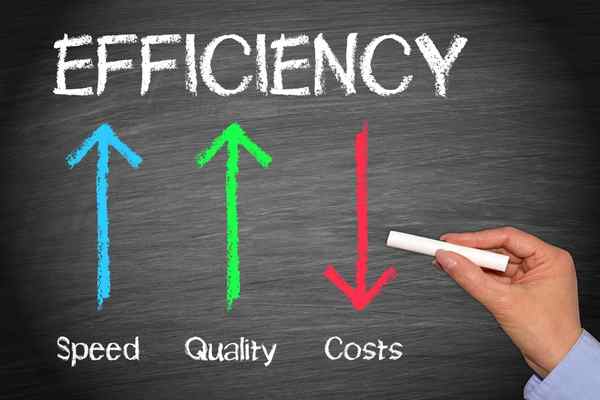Efficiency based goals is how we tend to run our personal financial lives, and today I’ll share why I recommend them for business as well.
‘Do more with less.’
These four words summarize the core message in every Board meeting when it comes to ‘financial planning.’
Efficiency is something every salesperson pitches when talking about the benefits of their product or service to business buyers. Somewhere in every product value proposition is a version of: ‘Better, Faster and Cheaper.’
Efficiency as the Principle Behind Goal Setting 
I recommend using efficiency metrics as a principle in goal setting for businesses.
Targets such as Return on Capital, the Burn Multiple, the Rule of 40, or an equivalent that makes sense for your business model. Rather than static, primarily growth-oriented metrics with absolute values such as Customers, Usage, Revenue or Gross Profit.
Why Use Efficiency Based Goals Now?
An improved framework for goals and goal setting is on my mind more than usual right now. Every day I read and hear about companies, public and private, freezing hiring and laying off staff because they’ve missed or expect to miss their financial goals.
The planning cycle for 2023 will start mid-summer for many companies.
It would be nice to try a different approach to goal setting so goals are more flexible to changes in market conditions.
Goals: Process, Performance and Outcome
I have read about goals being categorized into three distinct buckets — Process, Performance and Outcome.
Process goals are actions individuals can take consistently in search of a result. An example would be exercising 4x per week for an hour.
Performance goals measure results that an individual can (mostly) control and would directly result from following the process goals set above. Continuing with the exercise metaphor, an example would be a goal to set a record in both weight lifted and number of reps (done properly) in the squat.
Outcome goals are focused on the ‘big picture’ results which require the coordinated, successful performance of a group of people. Outcome goals are often influenced by exogenous factors — competitive responses and the macro-economic environment are some examples of factors outside your control.
Building further on the exercise metaphor, reaching a certain body fat percentage would be an outcome goal. It is influenced by the process and performance goals set above but also by caloric intake and other variables not considered above.
Use Efficiency Based Goals When Flexibility Matters
The reason that I recommend efficiency as the framework for goal setting is because it encourages leaders to consider trade-offs and brainstorm innovative ways to solve the challenges in their business. Efficiency based goals can be achieved even if the absolute customer, usage, revenue or gross profit goal is no longer achievable.
Apply Personal Financial Management Principles to the Business
Efficiency based goals is how we tend to run our personal financial lives. Should we lose or expect to lose some or all of our income, responsible individuals would cut their expenses.
Similarly a well run business should adjust its burn / investment to reflect growth or gross profit goals that are no longer achievable due to variables outside their control.
Efficiency-based Outcome goals can have all the elements of a SMART goal (Specific, Measurable, Achievable, Realistic, and Time-Based.) And give leaders more levers to pull to create better outcomes for employees (i.e. higher likelihood of earning incentive compensation) and the shareholders (better use of funds.)
This approach can be applied both at the company level and at the functional level (i.e. Marketing or Sales.)
I know this approach might be nearly impossible to implement in a public company context where the investment community expects ranges for specific P&L line items.
I would welcome feedback and suggestions from people who have tried an efficiency based goals approach or seen it implemented.
Join our community for more tips on leadership and business acumen. Learn more.
